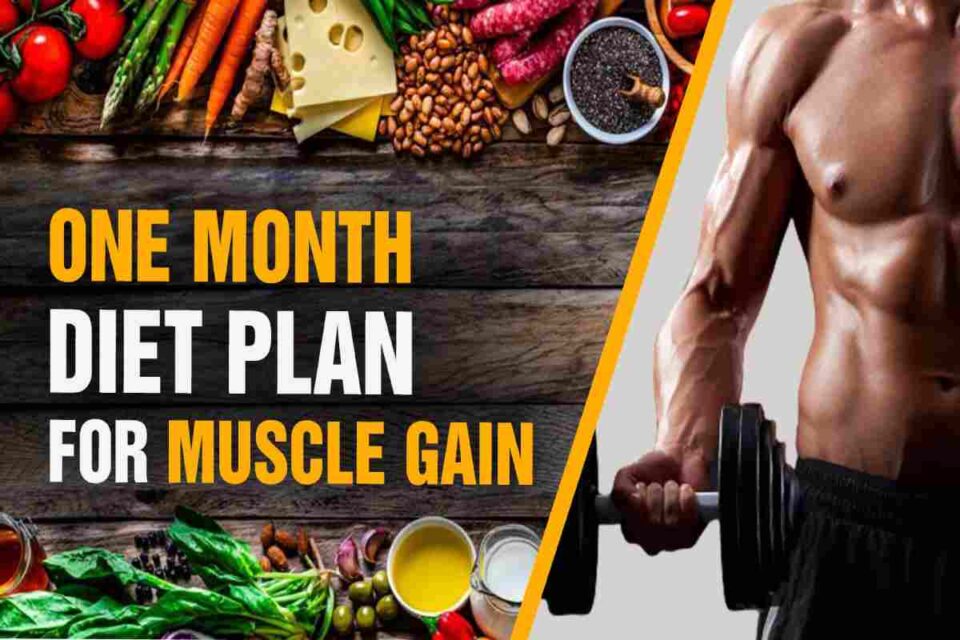How to Gain Muscle on Diet: Improving strength and increasing muscle mass go beyond training; we must emphasize the recovery phase, where food is essential.
It is as essential to you to provide the necessary nutrients in the right measure as not to provide excess macronutrients; more is not better. Many strength enthusiasts have the false belief that the higher the protein intake, the higher the protein synthesis and the increase in muscle mass. We must bear in mind that the maximum estimate of protein needs for an athlete is approximately 2 grams per kilogram of muscle mass; for a person weighing 75 kilograms, the daily protein intake should be a maximum of 150 grams; above these amounts, the body is not able to assimilate more protein, so it deaminates them and transforms them into glucose or, in their worst option, they end up as reserve fat.
Table of Contents
THE IMPORTANCE OF A GOOD ROUTINE
Sometimes we take care of the main meals and neglect the meals between them or make them. To hypertrophy, it is essential to make between 5 and 6 intakes a day; for this reason, these small meals between hours are crucial.
Prepare a complete sandwich that provides you with carbohydrates, some clean protein, and vegetables. Examples are two slices of whole wheat bread, cold turkey, some low-fat cheese, and lettuce and tomato.
It is important to include several food groups and rely on tuna, chicken, and rice; the Mediterranean diet provides us with complete and healthy foods such as legumes. At noon, a whole dish consists of chickpeas, peas, beans, or lentils; in the same meal, we have an ideal proportion of carbohydrates and proteins, a very suitable option both before and after training.
In this table, you have some foods that you should constantly include in your diet
which should be part of your diet. These are the pillars on which you can supplement your diet with supplements or other food groups.
| Food | Benefit | Observations |
| Oats, legumes, whole grain products | Provides energy to the muscle to train with intensity | Do not abuse these foods; an excess will mean an increase in fat |
| Cottage cheese, white meat, eggs, and fish | They provide proteins of different monograms to replenish muscle tissue | Take these foods throughout the day, and in small doses, it is much better assimilated |
| Brightly colored fruits, vegetables | Include them every day and, if possible, raw, totally natural; in this way, you will get the micronutrients (vitamins, minerals) and fiber. | Select foods that contain the primary antioxidants, such as carotene, vitamins C and E, and minerals such as selenium and zinc, which are very important for athletes. |
| Olive oil and nuts (avocado, nuts, seeds) | Fat-soluble vitamins and heart-healthy fat | They even allow you to burn fat without a deficit of fat-soluble vitamins and essential enzymes |
After a hard training, the glycogen stores stored in the muscles are at a minimum, there is dehydration and the contractile proteins are structurally damaged, the objective is to repair these consequences of exercise so that in the next session we are better recovered and we can continue to improve in strength adaptations and increases in muscle mass.
Above all, we need to replenish the glycogen stores and the eliminated fluids.If you are in high performance periods with demanding sessions and high frequencies of training where you need a quick recovery, take a carbohydrate and protein shake with about 250 ml of water. The ideal is a hydrolyzate whose percentage of carbohydrates is always higher than that of proteins, the appropriate thing is a ratio of 60-70% of carbohydrates and 40-30% of proteins.
Expert Advice
Mix an amount in grams equal to your body weight; for example, if you weigh 70 kilos, add 70 grams of the product. Avoid mixing it with juices, milk, or other liquids. They will delay gastric emptying and alter the properties of hydrolyzates, which are prepared to be integrated and assimilated only with water. You can add creatine and glutamine to this shake, which will also be incorporated very effectively.
At the End of the Day
The last meal is essential, and we must pay special attention; it should not be very caloric, but it must provide nutrients with a plastic function. Ideally, a clean protein source such as fish or red or white meat is shallow in carbohydrates.
The Best Nightly Supplement
Forget the glass of cocoa milk. Supplements that work very well at night for the anabolic rest period are branched-chain amino acids, glutamine, or a slowly assimilating protein like caseinate. Avoid ingesting whey protein overnight; at this time, we do not need such fast action.

